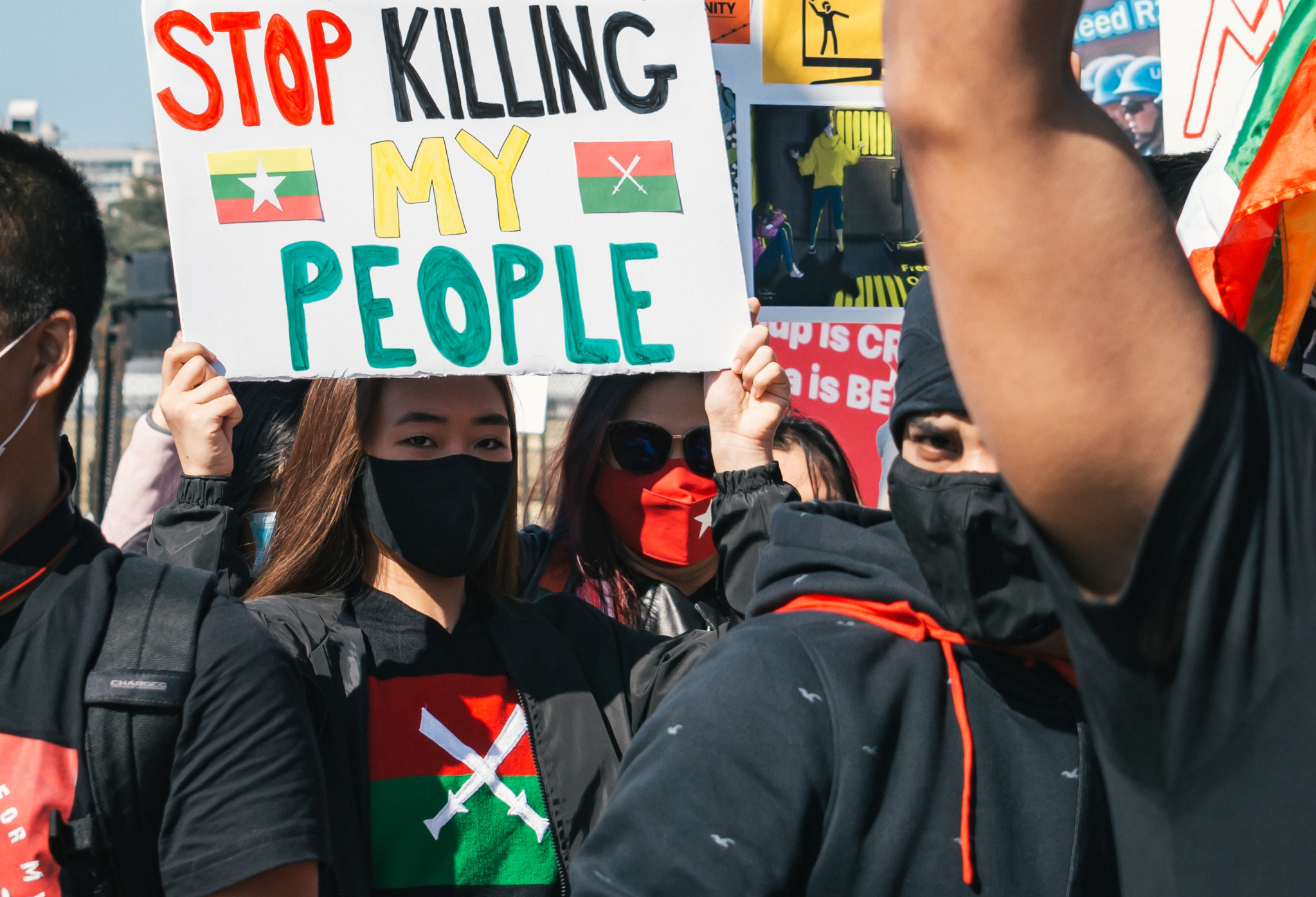For a variety of reasons, the United States has historically been cautious in its engagement with Burma’s Ethnic Resistance Organizations (EROs). However, the critical roles they have played since the February 2021 coup demonstrate the need for intentional inclusion of EROs in all aspects of both the democratic resistance movement and in planning for Burma’s future federal democracy. The U.S. must urgently evolve its approach to support the Burmese democratic resistance to include stronger strategic engagement with EROs. In doing so, the U.S. can signal the value it places on more inclusive decision-making processes and the development of a future democratic state that reflects the will of all the people of Burma.
Modern tensions between Burma’s many ethnic groups and its Bamar majority have their roots in perceptions of unkept promises of autonomy and self-determination made around the time of Burmese independence in 1948. As a result of these broken promises, many ethnic groups took up arms to defend their interests against the Bamar-majority central government, engaging in the world’s longest-running civil war. Facing mass human rights violations, campaigns to erase ethnic languages, religion and culture in favor of a Bamar-Buddhist identity, and decades of intense brutality, ethnic resistance to successive Burmese military regimes was channeled through ethnic political parties and armed Ethnic Resistance Organizations. Meanwhile, successive Burmese governments – including the National League for Democracy (NLD)-led governments between 2015 and 2021 – sought to negotiate peace settlements with the EROs with limited input from ethnic communities about their political and economic priorities, and no compromises from the government for genuine autonomy or accountability for the crimes they had endured at the hands of the Burmese military.
As others have highlighted, the 2021 coup brought a difficult reckoning to Burma’s Bamar majority about the truth of the tyranny of the military – it was hard to dismiss ethnic groups’ claims about military brutality when that violence was directed against the entire population. Historically, many in Burma’s central cities had downplayed ethnic issues, seeing them as distant concerns, or had accepted the military’s claims to be preserving Burma’s national unity in its campaigns against ethnic groups. However, the military’s urban violence against unarmed civilians following the coup led to a perception shift, with people across Burma – especially the younger generation – recognizing the threat the military posed to all people in Burma. The acknowledgment of the shared objective to oppose military rule created new opportunities for alliances across ethnic groups, strengthening the democratic movement.
The longstanding ERO support for federal democracy gained renewed focus after the 2021 coup, and in the post-coup context, Burma’s EROs have played a crucial role in advancing federal democratic goals. As the junta cracked down on the civil disobedience movement (CDM) and intensified its assault on rights, thousands of people, including deposed NLD lawmakers, activists, CDMers, military defectors and refugees, fled to shelter in ERO-controlled areas. The EROs, such as the Karen National Union (KNU), Kachin Independence Organization (KIO) and Karenni National Progressive Party (KNPP), have provided support, shelter, and safety, while also demonstrating how to conduct governance even during conflict. As democratic resistance evolved, EROs have supplied essential resources and training to the People’s Defense Forces (PDFs) that have fought back against the junta’s indiscriminate violence, serving as a symbol of the Burmese population’s resistance and resilience.
Negotiating an end to the current violence and building a genuine federal democracy in Burma will require active engagement of all democratic stakeholders, with a specific intention to ensure historically marginalized ethnic groups are both equipped and enabled to participate. The stakes could not be higher for this effort to be successful, and United States’ leadership is essential to support those bravely attempting to fashion a new, free, and democratic Burma.
The BURMA Act language included in the 2023 National Defense Authorization Act (NDAA) provides an important framework through which U.S. engagement with EROs can be realized. This engagement can be channeled through two complementary approaches: convening and direct support. Active U.S. public diplomacy that engages ERO leaders and members will lend important recognition and legitimacy to these key stakeholders, to audiences inside and outside of Burma. In addition, U.S. credibility as a long-time supporter of the Burmese democracy movement enables it to play a convening role to support more active participation by EROs in any planning for Burma’s democratic future. This could be done by providing a platform for formal and informal dialogues and negotiations among the various stakeholders on Burma’s political future.
Moreover, U.S. direct engagement with EROs will ensure that any planned assistance responds to ERO-identified priorities and on-the-ground realities. Such direct support could be in the form of technical assistance on things like strategic communications or early-warning systems to detect incoming Burmese military air attacks or capacity strengthening in areas such as democratic governance, policy development, and negotiation skills that both serve the needs of the democratic resistance now and help establish a stronger foundation for future federal democracy.
U.S. support for active engagement of EROs is essential to build a future Burma that recognizes the rights and autonomy of all its diverse communities, and to rectify the historic sidelining of the country’s ethnic populations from central power structures. Broader public recognition of EROs’ pivotal role, especially after the 2021 coup, creates further urgency to both address the mistakes of history and to fulfill the expectations of people across Burma who have risked and sacrificed so much for a free and democratic nation. As the U.S. State Department noted in January, a genuine and inclusive democracy in Burma requires strengthening “unity and cohesion among diverse groups who share [that] vision.” The EROs, ethnic political parties and the communities they represent require U.S. support for their full engagement. Without this, any attempt at democracy will be incomplete and risks perpetuating the cycles of conflict and marginalization that have plagued Burma from its beginning.
Top
